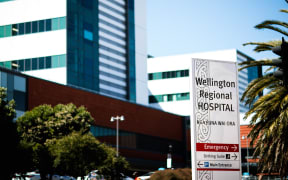
The cost of last year's 125,000 MRI scans alone was now close to $100m on its own (generic image). Photo: 123RF
The cost to the public of medical imaging scans continues to ratchet up.
ACC funds about 40 percent of privately-done scans in the country and has been trying to rein in costs even while encouraging more scanning, partly by refusing to raise the rate it pays out.
It has also been moving to overhaul its payment regime, though not with any great speed.
Its latest figures show it spent almost $130 million this way last year, up by 12 percent in just one year, way ahead of inflation.
Five years ago the bill was just $95m.
The cost of last year's 125,000 MRI scans alone was now close to $100m on its own.
All up, the compensation corporation bought 175,000 high-tech scans, up 11 percent.
Four factors were pushing up volumes: Better tech; hight-tech imaging becoming standard practice; an ageing population; and more providers.
Private providers have been piling investment in to radiology scanning since about 2020.
The biggest player, Infratil, has described the attractions, encompassing "diversified funding sources" from ACC, public hospitals and screening initiatives, private health insurance and direct patient fees.
It makes most of its money from what are called "complex modalities" - deploying a range of high-tech scans.
This sort of business was pushing radiology growth globally, with New Zealand playing catch-up to the likes of Australia, when it comes to the high-end likes of PET-CT scanners and how many scans were done.
ACC has been widening which specialists were allowed to refer for a scan, from GPs trained to refer MRI for knee, lumber or upper spine injuries, to - just last December - nurse practitioners, too, though it said "this change is not a significant driver of demand or cost for high-tech imaging services".
Meantime, it was trying to put the brakes on.
A few months ago, it told providers the rates it pays them per scan would not go up, since a review "indicated our current prices are sustainable and comparable with Australia".
"We are exploring what a future commissioning model could look like for high-tech imaging services," it told RNZ.
"Our priority will be to ensure that we maximise recovery outcomes for injured New Zealanders, while managing pricing in an appropriate and sustainable way."
It said something similar at the end of 2022, but the new model has yet to emerge.





